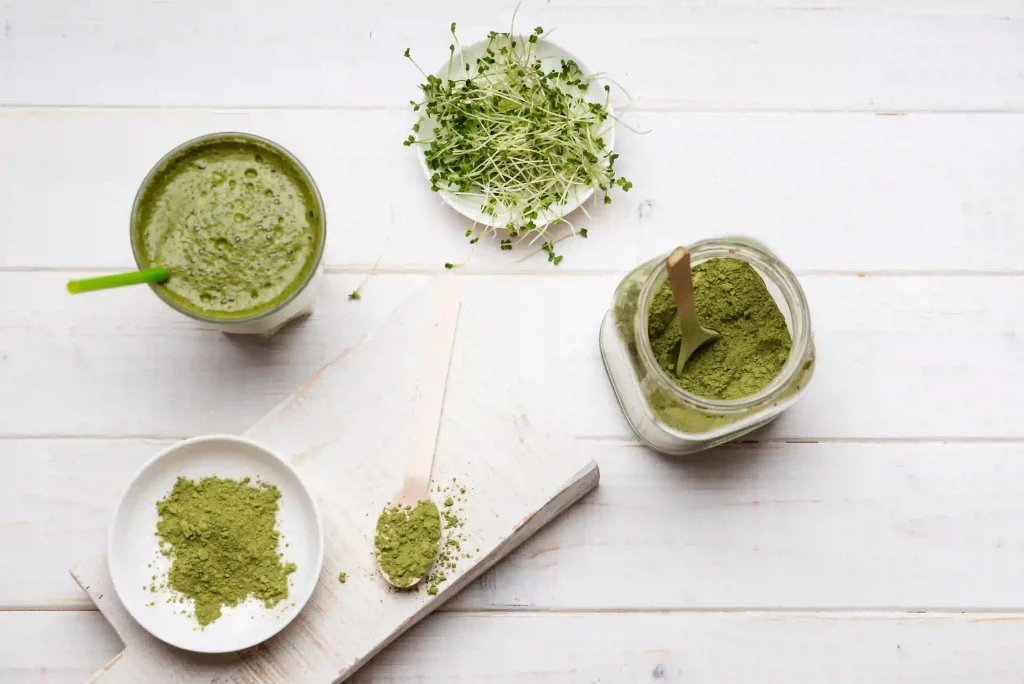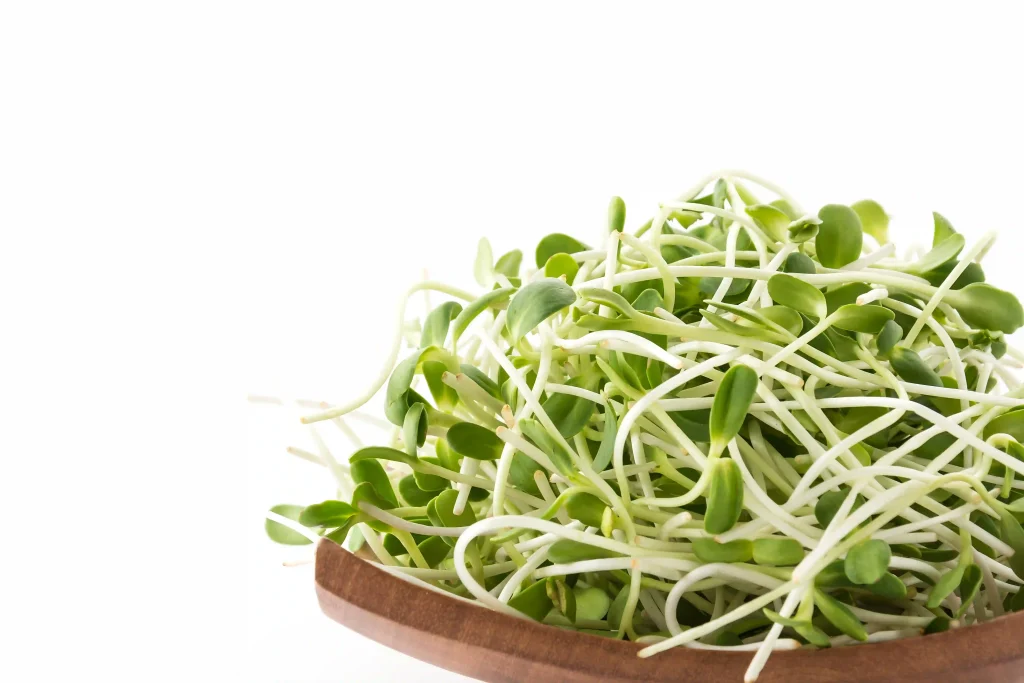In today’s fast-paced world, where synthetic supplements and processed foods dominate our daily lives, there exists a remarkable plant that has stood the test of time, offering a natural solution to many of our health and wellness needs. Alfalfa, often overlooked in the modern health conversation, emerges as a testament to nature’s incredible ability to provide complete nutrition in its purest form. As a health writer who has spent years researching and experiencing the benefits of natural supplements, I’ve found myself constantly returning to this remarkable plant, fascinated by its comprehensive nutritional profile and versatile applications in promoting overall well-being.

Ancient Wisdom Meets Modern Science
The story of alfalfa is deeply rooted in human history, stretching back thousands of years across various civilizations and cultures. Walking through a field of alfalfa plants on a warm summer morning, with their delicate purple flowers dancing in the breeze, it’s easy to understand why ancient civilizations revered this plant so highly. The Arabic origin of its name – “al-fal-fa,” meaning “father of all foods” – speaks volumes about its historical significance. This wasn’t just a casual designation; it was a recognition of the plant’s exceptional nutritional value and its ability to thrive in diverse environmental conditions. Modern scientific research has now validated what traditional healers and ancient cultures understood intuitively – that alfalfa is indeed one of nature’s most complete food sources. Through advanced analytical techniques, researchers have uncovered the complex biochemical composition that makes this plant such a valuable addition to our daily nutrition regimen.
The Nutritional Profile That Will Blow Your Mind
When we delve into the nutritional composition of alfalfa, the numbers tell an extraordinary story that sets it apart from other plant-based nutrients. This remarkable plant contains an impressive protein content of approximately 60%, surpassing many traditional protein sources, including some animal products. The protein quality is particularly noteworthy, featuring all eight essential amino acids that our bodies cannot produce independently. Beyond protein, alfalfa serves as a comprehensive vitamin warehouse, containing substantial amounts of vitamins A, B, C, D, E, and K, each playing crucial roles in maintaining optimal health. The mineral content is equally impressive, with significant levels of calcium, potassium, magnesium, and zinc, all in forms that are highly bioavailable to the human body. To put this into perspective, a single serving of alfalfa sprouts (about one cup) provides more vitamin C than a medium-sized orange, more iron than spinach, and a wider array of essential nutrients than most multivitamin supplements.
The Hair-Growth Connection: Your Natural Beauty Ally
The relationship between alfalfa and hair health represents one of the most fascinating yet underexplored aspects of this versatile plant. Through extensive research and countless testimonials from both practitioners and users, a compelling narrative has emerged about alfalfa’s potential role in promoting healthy hair growth and maintenance. The secret lies in its unique nutritional composition, particularly its exceptional content of bioavailable silicon and zinc, two minerals that play pivotal roles in hair follicle development and strength. Silicon, often overlooked in conventional hair care discussions, contributes to the structural integrity of hair strands while simultaneously supporting the body’s natural collagen production, which is essential for healthy scalp condition. Zinc, on the other hand, plays a crucial role in protein synthesis and cell division, processes that are fundamental to hair growth and repair. What makes alfalfa particularly special in this context is not just the presence of these nutrients, but their natural co-occurrence with other complementary compounds that enhance their absorption and effectiveness.
From Seed to Sprout: The Journey of Alfalfa Seeds
The transformation of alfalfa from seed to sprout represents a remarkable journey of nutritional enhancement that deserves deeper understanding. These tiny seeds, barely visible to the naked eye, undergo a dramatic metamorphosis during the sprouting process, activating dormant enzymes and multiplying their nutritional value manifold. The sprouting process is a perfect example of nature’s efficiency in creating nutrient-dense food sources. During germination, complex proteins are broken down into more digestible amino acids, starches convert to simple sugars, and enzyme inhibitors are neutralized, making the nutrients more bioavailable to the human body. The beauty of this process lies in its simplicity and accessibility – anyone with basic kitchen equipment can participate in this miraculous transformation. The journey begins with high-quality organic alfalfa seeds, carefully selected for their viability and purity. These seeds are then subjected to a carefully controlled environment of moisture, air, and indirect light, initiating a cascade of biochemical changes that unlock their nutritional potential. Within 4-6 days, what started as dormant seeds transforms into vibrant, living sprouts, each one a concentrated source of vitamins, minerals, and life-supporting compounds.
The Plant That Keeps on Giving
The remarkable characteristics of the alfalfa plant extend far beyond its sprouting capabilities, making it a truly extraordinary member of the plant kingdom. Its root system, which can penetrate soil layers up to 20 feet deep, serves as a natural mining operation, extracting minerals and nutrients that are otherwise inaccessible to most plants. This unique ability makes alfalfa a superior source of trace minerals that are increasingly depleted from modern agricultural soils. The plant’s deep root system also contributes to soil health by fixing nitrogen and improving soil structure, demonstrating its value not just as a nutritional powerhouse but as an essential component of sustainable agriculture. Every part of the alfalfa plant offers distinct nutritional benefits – from the protein-rich leaves to the mineral-concentrated roots, and the nutrient-dense seeds. This comprehensive utility has made alfalfa a valuable resource in both traditional medicine and modern nutritional science, with applications ranging from livestock feed to human health supplements.

Benefits That Will Make You a Believer
The comprehensive health benefits of alfalfa extend far beyond basic nutrition, encompassing a wide range of physiological systems and functions that contribute to overall wellness. Through decades of scientific research and centuries of traditional use, we’ve uncovered compelling evidence supporting alfalfa’s role in promoting health and preventing various conditions. What makes alfalfa particularly remarkable is its ability to address multiple aspects of health simultaneously, thanks to its unique combination of bioactive compounds, enzymes, and nutrients. The synergistic interaction between these components creates a therapeutic effect that’s greater than the sum of its individual parts. This holistic impact on health has been documented in numerous scientific studies, though it’s worth noting that research continues to uncover new benefits and mechanisms of action.
Digestive Health Champion
The relationship between alfalfa and digestive health represents one of its most significant and well-documented benefits. The plant’s unique fiber composition, including both soluble and insoluble types, provides comprehensive support for the entire digestive system. The soluble fiber acts as a prebiotic, nourishing beneficial gut bacteria and promoting a healthy microbiome, while the insoluble fiber aids in maintaining regular bowel movements and supporting intestinal health. Furthermore, alfalfa contains natural digestive enzymes that facilitate the breakdown and absorption of nutrients from other foods. These enzymes, combined with the plant’s anti-inflammatory properties, help reduce digestive discomfort and promote optimal nutrient absorption. Long-term consumption of alfalfa has been associated with improved gut barrier function and reduced risk of digestive disorders, making it an invaluable ally for those seeking to enhance their digestive health naturally.
Hormone Balance Support
The impact of alfalfa on hormonal health represents one of its most intriguing and promising applications in modern wellness. The plant contains phytoestrogens, particularly in the form of coumestrol and other isoflavones, which can help modulate hormonal activity in the body. These compounds are especially relevant for women experiencing hormonal transitions or imbalances, as they can help alleviate associated symptoms while supporting overall endocrine function. What makes alfalfa’s hormonal benefits particularly noteworthy is the presence of supporting nutrients that help optimize hormone production and metabolism. The combination of minerals like zinc and magnesium, along with B vitamins and essential fatty acids, creates a comprehensive support system for hormonal balance. This multi-faceted approach to hormonal health distinguishes alfalfa from single-compound supplements and may explain its long history of use in traditional medicine for women’s health concerns.
Antioxidant Powerhouse
The antioxidant properties of alfalfa deserve special attention, as they represent a crucial mechanism through which this plant supports overall health and longevity. Beyond its impressive vitamin E content, alfalfa contains a diverse array of polyphenols, flavonoids, and other bioactive compounds that work together to neutralize harmful free radicals and reduce oxidative stress throughout the body. These antioxidant compounds don’t just work independently; they form a sophisticated network of protection that can adapt to different types of oxidative challenges. The presence of selenium and other trace minerals in alfalfa enhances its antioxidant capacity by supporting the body’s natural antioxidant enzymes, creating a dual approach to cellular protection. Research has shown that regular consumption of alfalfa can help maintain healthy cellular function and may contribute to reduced risk of various age-related conditions associated with oxidative damage.
Smart Shopping: What to Look For
The selection and purchase of alfalfa products requires careful consideration of multiple quality factors that can significantly impact their nutritional value and safety. When evaluating alfalfa products, whether in the form of seeds, sprouts, or supplements, several critical factors deserve attention. Organic certification stands as a primary indicator of quality, ensuring the products are free from harmful pesticides and grown under controlled conditions that maximize nutrient content. Non-GMO verification provides additional assurance of product purity and natural cultivation methods. Storage conditions play a crucial role in maintaining the viability and nutritional integrity of alfalfa products, particularly for seeds and fresh sprouts, which require specific temperature and humidity controls to prevent degradation and potential microbial growth.
Practical Ways to Enjoy Alfalfa
The versatility of alfalfa in culinary applications extends far beyond its traditional use as a garnish or salad ingredient. Its integration into daily meals can significantly enhance both nutritional value and gastronomic appeal. The mild, nutty flavor profile of alfalfa sprouts complements a wide range of dishes while providing substantial nutritional benefits. Morning meals benefit particularly from the addition of fresh sprouts, which can elevate simple dishes to nutritional powerhouses without overwhelming other flavors. Salad preparations featuring alfalfa demonstrate remarkable versatility, as the sprouts contribute not only nutrients but also a pleasant textural contrast that enhances the overall dining experience. The incorporation of alfalfa into smoothies represents an innovative approach to consuming this nutrient-dense food, allowing for maximum nutrition with minimal impact on taste.
Safety First: What You Need to Know
While alfalfa offers numerous health benefits, responsible consumption requires awareness of proper handling and potential contraindications. Quality sourcing from reputable suppliers forms the foundation of safe consumption, as it helps minimize risks associated with contamination. Proper storage practices, including maintaining appropriate refrigeration temperatures and monitoring storage duration, are essential for preventing potential microbial growth. The interaction between alfalfa and certain medications, particularly blood thinners, necessitates consultation with healthcare providers before regular consumption. These considerations ensure that the benefits of alfalfa can be enjoyed safely and effectively as part of a balanced health regimen.

The Future of Alfalfa
The scientific community continues to uncover new applications and benefits of alfalfa through ongoing research and development. Current studies explore its potential roles in sustainable agriculture, nutritional enhancement, and novel therapeutic applications. The plant’s environmental benefits, including soil improvement and carbon sequestration capabilities, position it as a valuable resource in addressing contemporary ecological challenges. These discoveries suggest an expanding role for alfalfa in both human health and environmental sustainability.
Conclusion
Alfalfa stands as a testament to nature’s capacity to provide comprehensive nutritional support through a single plant source. Its extensive history of use, combined with modern scientific validation of its benefits, establishes it as a valuable component of contemporary health practices. The accessibility and versatility of alfalfa make it an attractive option for those seeking natural ways to enhance their nutritional intake. As research continues to unveil new benefits and applications, alfalfa’s role in promoting health and wellness appears poised to grow, offering promising solutions to various health challenges while contributing to sustainable agricultural practices.
This comprehensive exploration of alfalfa highlights its significance as both a nutritional powerhouse and a versatile health resource. The integration of traditional knowledge with modern scientific understanding provides a solid foundation for its continued use in promoting human health and environmental sustainability.



